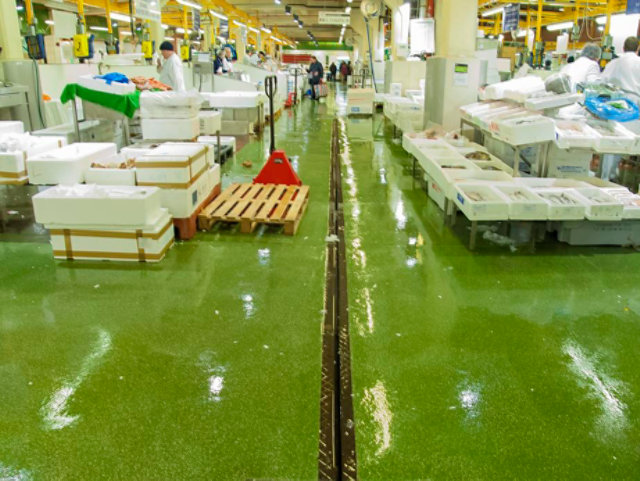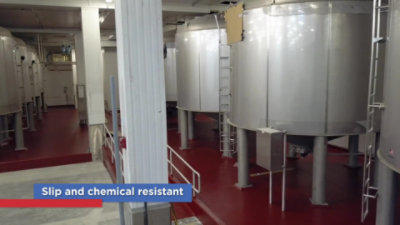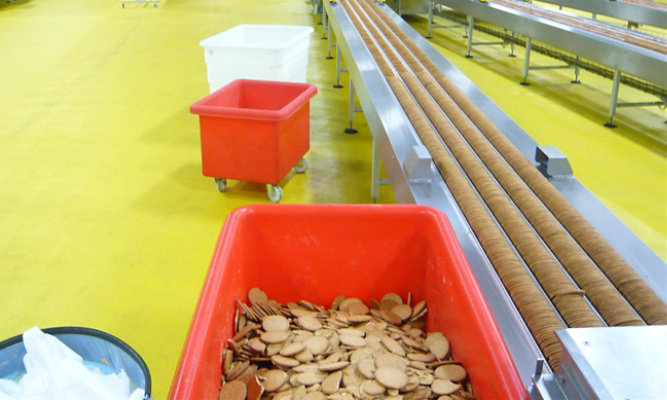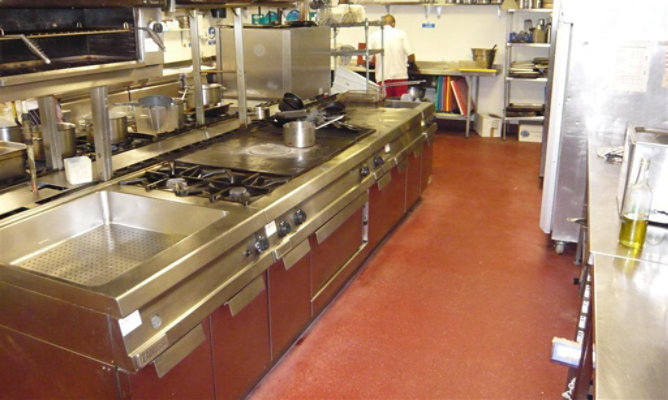
Meeting the Challenging Environmental Demands of the Food and Beverage Market
To meet the increasingly challenging demands of the fast-moving food and beverage market, scientists at Sherwin-Williams Protective & Marine Coatings have been working with customers to find solutions for the future. Vik Vithlani examines the emerging issues.
Benefits of Environmental Safety
Specifiers are tasked with balancing the needs of environmental safety including Volatile Organic Compounds (VOCs) and low odours with a flooring system that is fit-for-purpose in the rapidly changing food and beverage market.
At Sherwin-Williams, using the very latest advances in technology and science, we have been working closely with customers to determine future needs of this dynamic sector.
Among the emerging results of the work by our R & D experts is the FasTop range which has been developed specifically for these applications over a number of years and continues to be developed to meet the most rigorous of demands today.
Coating of choice
Each and every project presents its own specific requirements and should be considered on its own merits against a series of criteria.
These will include a full understanding of the site, the specific environment it will be applied in and what is being produced in that facility.
As a proven product used widely throughout the food and beverage sector, FasTop is approved as a non–taint and food safe product by Campden BRI, the UK's largest independent food and drink research & development organisation.
When it comes to hygiene standards, this range offers additional benefits including seamless joints with a reduced risk of failure and bacteria growth.
Other features include slip-resistance and thermal shock protection which enables steam or pressure cleaning. It is also a non-taint product because of its solvent-free, water based formulation and is suitable for all dry or wet process areas.
As a proven product used widely throughout the food and beverage sector, FasTop is approved as a non–taint and food safe product by Campden BRI, the UK's largest independent food and drink research & development organisation.
Moreover, these products are also independently tested for slip and abrasion resistance by Aston University in accordance with BS 8204 Part 2.
Tried and Tested
As evidence of its track record since coming onto the market, the project to satisfy the requirements at Billingsgate Market in London’s East End is testament indeed.
Working closely with the Corporation of London and the installation team, Sherwin-Williams Protective & Marine Coatings delivered the FasTop system for the flooring, a water based polyurethane concrete resin screed.
More than a decade after it was installed, the floor shines brightly below the traffic of people and goods as the bustling market goes about its business, demonstrating the future-proof benefits of FasTop.
The brief from the market more than 10 years ago was to provide a rapid solution that was not only fit for purpose and exceptionally durable, but would not disrupt the market’s day-to-day operations in the complex.
The technical team worked hard to fully understand the requirements of this sensitive food environment before choosing this system, and the research and development that went into this coating gave them the confidence of recommending it throughout.
The ground floor of the market comprises a large trading hall with 98 stands and 30 shops, including two cafes; a number of individual cold rooms; a 1,500 tonne freezer store; an ice making plant and 14 lock-up shops.
Where an existing floor is being refurbished, consideration should be given as to whether the existing flooring system needs to be removed. There is some risk in leaving the original system in place, as there is no way to know whether the existing floor was prepped properly when originally installed.
This decision depends on the type of floor being covered and the type being installed - the new system needs to adhere properly to the existing one. It is advisable to perform a mock-up test first in a small area (as little as 1 m2 [10 sf]) to confirm the application will hold.
If an existing system needs to be removed, crews have to peel it off and then remove any remaining glues and curing compounds via chemical and/or mechanical means.
For example, crews may need to use citric acid to soften and remove glue, and they may need to shot-blast, grind, mill, or even scarify the surface to fully remove the adhesive and get the surface to a smooth finish. In extreme cases, a flooring renovation will require breaking up the concrete base and pouring a new substrate.
Continuing development
Whether a new system or a refurbishment, by listening to our customers we can develop and formulate flooring systems for the future. With our advances in technology and science, we can achieve new levels of performance to keep pace with the food and beverage industry.
Using our own testing laboratory on-site, we continue to push new products through the most stringent technical and mechanical requirements.
We also benchmark against and conform to the international Hazard Analysis Critical Control Point (HACCP) regulations. This is the management system in which food safety is addressed through the analysis and control of biological, chemical, and physical hazards from raw material production, procurement and handling, to manufacturing, distribution and consumption of the finished product.
With the increasing demands for a sustainable flooring industry, and with the changing requirements of architects and designers, we must continue to keep pace with and anticipate new solutions for these challenging environments.
Discover More
Industry Expertise and Innovation
See how we help customers find customised solutions for their project and application challenges.
Product Lookup
Find out more about our innovative coatings for a variety of industries.
FIND A SYSTEM



